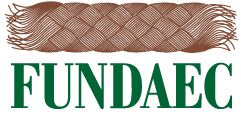
Guiding principles
The populations with which FUNDAEC works are not perceived according to views common in projects of social action—as masses of undernourished people, overwhelmed by problems and needs. For FUNDAEC, people are irreplaceable resources in a self-sustaining process of change; the challenge is to find methods that allow them to fully express this potential in all its dimensions.
While profusely praising human beings, dominant world ideologies tend to ultimately reduce them to objects of manipulation by either an unjust market or a deified State, as insatiable pleasure-seeking consumers of goods, or untiring participants in power struggles. This has led to a worldwide crisis in the very conception of the nature of human beings and society. Without going into ideological and religious details, the group achieved a common understanding of what they identified as the two interacting aspects of human nature.
The first, shared with the animal kingdom, is the result of a process of material evolution, with survival as the basic objective. Although useful and necessary, if left alone, this nature tends to show forth the characteristics of a lower existence, of cruelty, ego, and violence.
Such characteristics, which in the animal world cannot be judged as good or bad, can be overcome, however, if the true spiritual nature of man, full of infinite potentialities of love, justice and generosity, is allowed to develop and regulate the former. In spite of all the manifestations of cruelty and injustice in the world, through a proper educational process, the spiritual nature of every human being can flourish and a prosperous and advanced civilization can come into existence. Through its programs, FUNDAEC seeks to contribute to this new vision of human nature.
Development that is defined in terms of certain patterns of “modernization” seems to refer exactly to processes that promote the domination of man’s material ambitions over his spiritual goals. One of the manifestations of this type of progress and of this unbalanced obsession with industrialization is the accelerated disintegration of rural life witnessed during the past few decades. An analysis of existing rural problems and the historical evolution of development efforts in the post war era convinced the founders of FUNDAEC that this false version of modernization is not only unattainable by the majority of humanity but is also undesirable, and that the misery that reigns in the rural areas and the slums of many cities is nothing more than a logical consequence of the bankruptcy of dominant social ideologies. FUNDAEC’s development programs are carried out in the context of a search for a scientific and technologically modern society, where the educational, economic, administrative, political, and cultural structures are based on the integral nature of human beings, not only on their material needs.
The capacity of a people to participate in the generation and application of knowledge is an essential component of the development process. When the appropriate structures for that participation are absent, knowledge is easily manipulated for the benefit of the privileged members of society, and responds only to the interests of the dominant social ideologies that are basically neglectful of the needs and aspirations of peasants.
The villagers of the world receive technology that is the result of scientific progress applied to large farmers, whose production methods are entirely different from those of peasant societies, which are undergoing a process of transition and/or disintegration. In its search for these structures, FUNDAEC conceived the University for Integral Development as a social space where the two systems of knowledge, a modern one (with all its sophistication) and a traditional one pertaining to the people of the region, would interact in a healthy way.
Investigation and education, the two main components of the university’s activities, are carried out precisely in the context of this delicately balanced interaction of distinct knowledge systems.
Development should not be a process that basically imitates so-called “developed” countries. With this firm belief, FUNDAEC realized that it was taking an untrodden path. The task, then, would involve a scientific search rather than the implementation of a blueprint with predetermined goals and objectives. Thus, while many plans of action were implemented, some very simple, they were always accompanied by an element of investigation and learning.
Rural areas need much more than the usual interventions in education, health, production, infrastructure, and organization. Throughout the world, old structures and organizations of rural people have been swept away by the forces of modernization, but without new structures to take their place. Through the University for Integral Development, FUNDAEC has sought to link the different processes of rural life—production, simple construction and repair, marketing, the development of human resources, socialization, the flow of information, adaptation and the improvement of technologies, health care and sanitation, and decision making — to the pertinent political, social, economic and social structures of a new world order that it is also destined to be built during this crucial stage in the history of the human race.
For FUNDAEC, these concepts and principles are the foundation of a conceptual framework that has been enriched while, through the University for Integral Development, it has increasingly become immersed in the processes of investigation, action and learning about reality of the peoples of the regions where it has focused its efforts, a framework that is reflected in the methodologies developed for teaching, investigation or social intervention.


